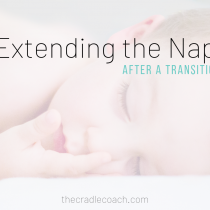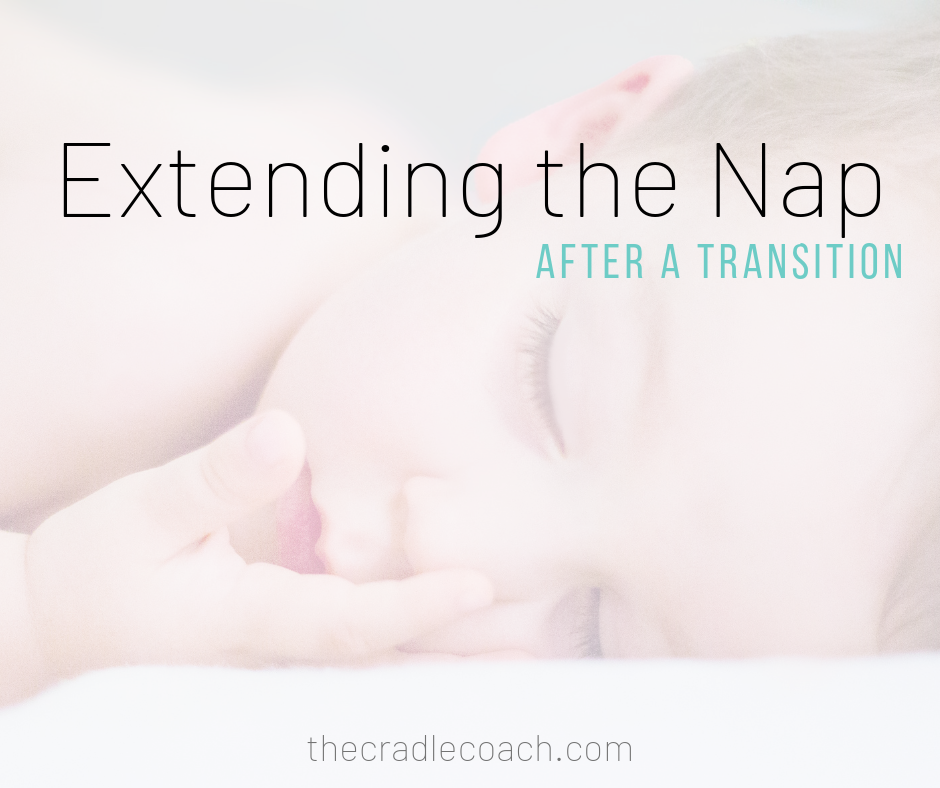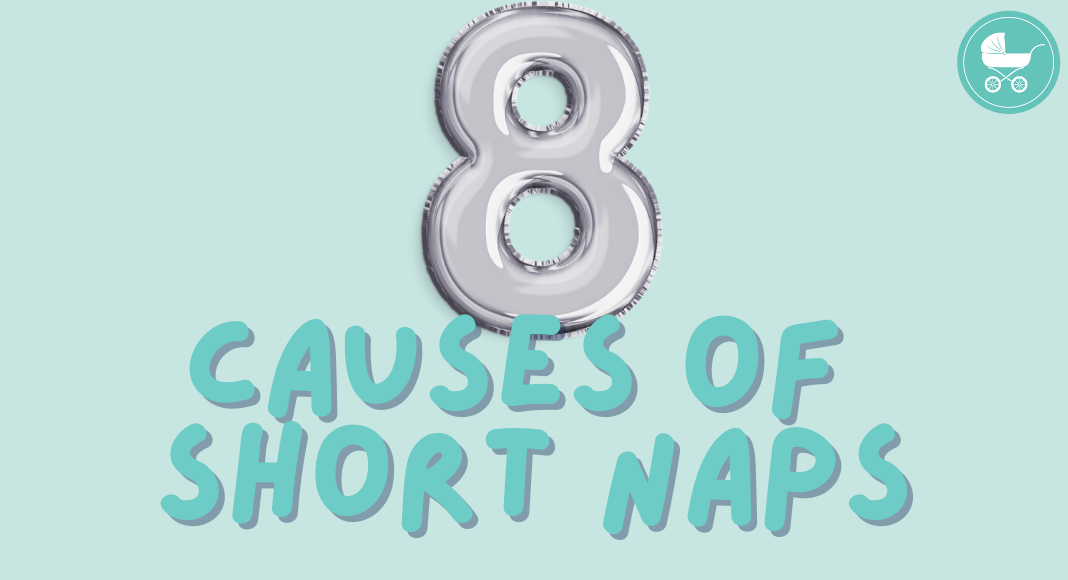
May 19, 2019
We all know how hard the transition from two naps to one can be, but the real challenge doesn’t necessarily lie in the schedule. The real challenge is simply making sure the child is getting a long enough restorative nap now that they are only taking one. We received a question from one of our […]
Extending the Nap After a Transition

We all know how hard the transition from two naps to one can be, but the real challenge doesn’t necessarily lie in the schedule. The real challenge is simply making sure the child is getting a long enough restorative nap now that they are only taking one. We received a question from one of our members in our private Cradle Coach Facebook Group asking…
“How do I get my 16 month old to take a longer nap? He goes down around 12 (completely exhausted, worn out, & full belly) but only sleeps till about 1:30, which makes him exhausted by 5:30 pm.”
This question is common as you are dealing with a 2 to 1 nap transition. Even after the schedule has become consistent, it can be a struggle having your child sleep in a longer stretch. Some children who are in the midst of the transition can some days need a second nap when they aren’t taking a solid one nap. At this age, and during this transition, we would like to see a solid two hour sleep. Do all kids need two hours? No. But most do! So as sleep consultants, we take a look at five questions to dig deeper and give four strategies to try with their little ones.
The five questions we ask our clients:
- Is your child waking early?
- What time is your child going to bed at night?
- And how quickly is your child falling asleep when placed in the crib for a nap?
- How dark is the room?
- Have you tried sleep training during the nap at all? If so, explain in detail what you’ve been doing.
In this situation, the child had been waking earlier than usual – typically 6:45am – when he had been sleeping to 7:30/8am. His bedtime is at 7pm and naps are consistently always given at 12pm. So how do you help extend the nap?
Here are four options to try:
- The Wake to Sleep approach. When everything seems to be consistent, trying the Wake to Sleep approach for 3-5 days in a row might be a great option. This approach takes your child out of a deep cycle of sleep and into a lighter cycle of sleep, allowing the habitual waking to break. There is a 50/50 chance it will work, but why not try it?
- Make sure the child’s room is DARK. I know we state it often, but too many times we hear a client say they have a dark room and when asked for a video of the room, it’s still too bright! We want it to be so dark (especially at this age for your child and the time of day it is) that if you place your hand in front of your face, you really can’t see it! Here is a darkening shade we love and often recommend.
- Bring bedtime up a bit earlier. This transition is hard. Bringing bedtime 30 – 60 minutes earlier isn’t a bad thing at all. In fact, it can help beat the early morning rising and breaks the habit of a shorter nap! I remember when my youngest was 2 and in this transition. He could barely make it to 5:30pm without a meltdown. We would dance, sing, play outside, etc… just to keep him up to 7pm. Then, I realized the benefit of an earlier bedtime and started putting him down at 6pm. He would sleep until 7am every morning when prior, he would go down at 7pm and wake around 5:30/6am. He gained more sleep, took a better nap, and stopped waking early.
- Last tip, and oh it’s a good one – try sleep training! I know, it’s a crazy thought, but why not give it a try? If you’ve tried all the other suggestions above, go ahead and start sleep training for that nap. Do your best and remember…naps easily take two weeks to figure out!!
If there is no sign of hope and you need a custom plan made for your child’s nap, we can help you with that. Check out our toddler packages here and we can get started immediately. We wish you the best on your sleep journey!
Get instant access to our free sleep class for children from newborn to 5 years old. You will learn how to get your child to sleep independently -- and all through the night!
Get Your Child To Sleep All Night Long in as Little as 7 Days!
join the free class
THE CLASS


